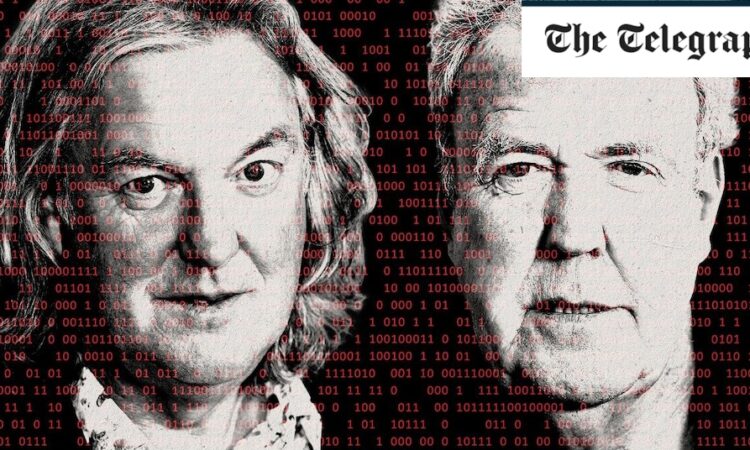
“Our provisional research estimates that 80 per cent of scam ads involving celebrities feature me or Elon Musk,” Lewis says. “Most of the others that we see are click testing. Don’t think of dodgy, unsophisticated criminals sitting in a corner; these are more like criminal digital marketing agency types. They’ll put different people out to see if they generate the right clicks. Like anything else, as well as the peak figures, you want variety, because different people attract different things. [The Grand Tour presenters] have probably done reasonably well.
“The advantage of them over someone like me is they have more international reach. The advantage of me is that financial scams are close to what I do for a living. I think they’re always looking for new ones.”
As technology has improved, so has the quality of the fakes: as Lewis’s website states, today there are now computer-generated videos of Martin which are “terrifyingly convincing.”
“[Being scammed] ruins people’s lives,” Lewis says. “It destroys their finances, destroys their self-esteem, it can absolutely knock people’s mental health on a temporary or permanent basis once they realise they’ve given away a huge chunk of their life savings.
Ilya Brovin, chief growth officer at Sumsub, a company that provides verification and transactional monitoring technology, says it’s no accident that these scams are using older celebrities; they are more likely to lure in less tech-savvy older victims. “Using middle-aged, or even slightly older, figures [like James May], could potentially be targeted at people who are very used to phone calls, or believing what they see in media,” he says, “as opposed to some of the younger ones who are used to the fact that you can’t really trust it.”
Crypto is an especially appealing prospect, he says, because the field is so unregulated. According to Sumsub’s statistics, 88 per cent of deepfake fraud attempts target the crypto industry, while there was a 128 per cent increase in deepfake crypto fraud in 2023. “[Crypto] is completely decentralised and not tied to any jurisdiction, and because of that it’s particularly targeted [by scammers],” says Brovin. “It’s hard to trace and hard to recover your money from.”
It does not help that so many real celebrities, from Matt Damon to Gwyneth Paltrow and Larry David, have been legitimately involved in cryptocurrency-related advertisements. If it is good enough for Kim Kardashian – who paid more than $1 million to settle charges that she had not been forthcoming about having been paid to promote a cryptocurrency token in 2021 – then surely it is good enough for James May, an innocent browser might think.






